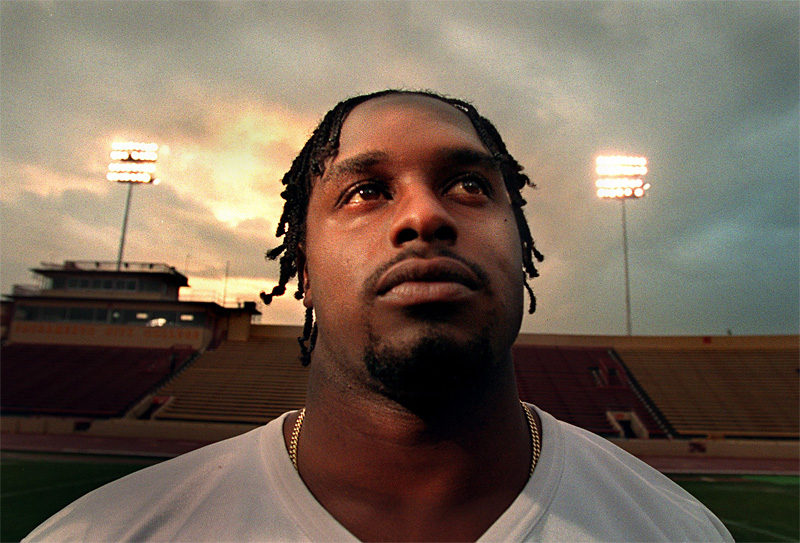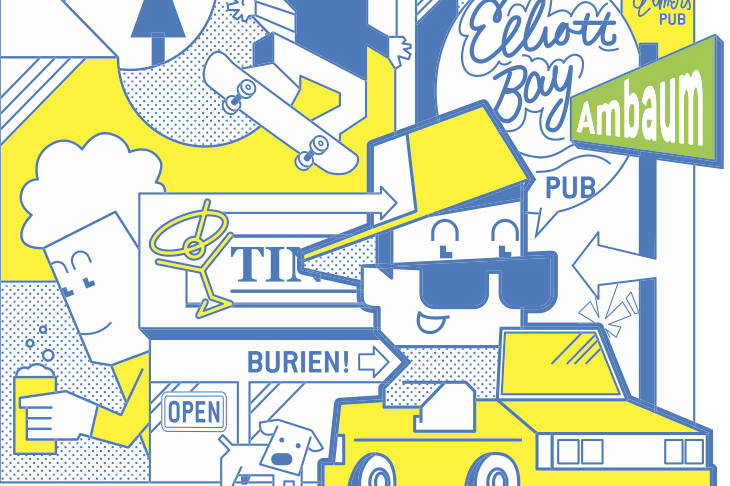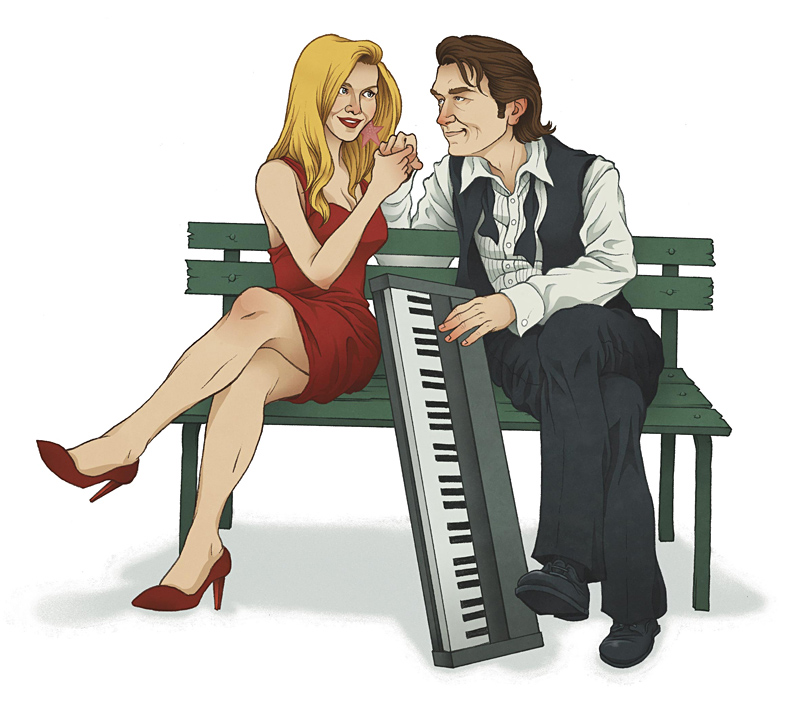In the upper rungs of sport, be it Division I collegiate or the pros, talent is a virtual given. Killer instinct is not. While there are occasional exceptions to the rule, nice guys tend to finish mid-pack at best. Lawrence Taylor, Ty Cobb, and Michael Jordan were all degenerate assholes. They’re also three of the most dominant players ever in their respective games.
Ken Armstrong and Nick Perry’s new book, Scoreboard, Baby, is a riveting, exhaustive probe into the cesspool that Husky football became in the late ’90s and early aughts. It’s essentially their award-winning, four-part 2008 Seattle Times exposé writ large, published by the University of Nebraska Press (those familiar with Cornhusker football’s nefariousness in the ’90s will fully appreciate the irony here). Weaving in and out of the on-field drama of the Huskies’ most recent Rose Bowl season (2000), Scoreboard, Baby is the definition of a page-turner, cleverly constructed to keep the reader engaged with half-a-dozen genuinely compelling plotlines at a time, building slowly with tension as the book comes to foam.
At its core, Scoreboard, Baby is a story of special treatment: that which scholarship athletes receive from university admissions offices, teachers, prosecutors, and journalists alike. While the game passages make it clear that Perry and Armstrong know their way around the hash marks, neither is a sportswriter. Hence, they’re not required to dance the delicate tango that a beat reporter must in order to preserve access, and their indictments of the book’s villains—of which there are many—are sharp and sure-footed.
Among the Husky lettermen, there’s really only one good guy in Scoreboard, Baby, and that’s linebacker Anthony Kelley. He’s the one “special admit” who realizes he’s won an educational lottery he wouldn’t have if not for his ability to hit really large men really hard. Kelley becomes the consummate student-athlete, his hunger for knowledge at least as voracious as his drive to win. Ultimately, his attempts to get his fellow UW ballers to follow such a dynamic path are met with annoyance from the team’s coaches—even Tyrone Willingham, the former Notre Dame and Stanford helmsman who’d supposedly been brought in to nurture just that sort of balanced environment.
While Kelley’s inclusion in the book is worthwhile, it’s a distraction compared to the investigative heft and venom the authors bring to their depictions of Jeremiah Pharms, Jerramy Stevens, and Curtis Williams, three of the 2000 team’s brightest on-field stars. Rape, animal cruelty, attempted murder, assault, drunk driving, drug use, hit-and-run, domestic violence, reckless driving, armed robbery, driving without a license—you name the crime, these three were at least suspected of it, and there wasn’t a moment during their collective tenure when charges weren’t pending against one or more of them.
Armstrong and Perry spare no detail in their account of this trio’s struggles to stay within the law, but the press sure did at the time. Columnists Blaine Newnham (of the Times) and Ted Miller (of the P-I), in particular, are flayed for their blind-eyed treatment of these dirty Dawgs—as is former King County Prosecutor Norm Maleng. When Williams, a serial wife-abuser, was paralyzed after tackling a ball carrier with his helmet late in the 2000 season, he assumed the unlikely role of inspirational martyr during the team’s run for the roses, an irresistible storyline that the national media lapped up like parched elephants.
But thanks to the unflinching lens Armstrong and Perry turn toward their overall body of work as human beings, when Williams ultimately succumbs to complications wrought by his injury, it’s not enough that karma has dealt him a deadly hand—you want vultures to tear the flesh off his corpse and force-feed it to Stevens and Pharms, who in a just world would be strapped, Clockwork Orange–style, to an iron chair while their victims (whose perspective is carefully teased out) simultaneously pour malt vinegar onto a thousand painful paper cuts.
The coach of that 2000 team, Rick Neuheisel, is the most hated man in Husky history. When UW hired Neuheisel, he had a reputation as a slippery, lax disciplinarian who could charm the panties off a nun and whose leadership style could best be described as “just one of the guys.” He left UW with that reputation intact. The university’s administration knew—or should have known—that they were handing a million dollars a year and a team of physically gifted scofflaws who had no business roaming the halls of a learned institution to a guy who’d be highly unlikely to morph into an ethical taskmaster.
Neuheisel, who now holds the same job at UCLA (coaches are like cats), deserves some blame for the program’s downfall. But his predecessors, Jim Lambright and Don James, deserve at least as much—and don’t get it from Armstrong and Perry. During James’ storied tenure, star players would suddenly turn up in brand-new hot rods and earn money for nothing “working” for boosters. And Lambright was the one who recruited the pack of thuggish vermin whom Neuheisel would coach to a Rose Bowl title. This culture festered on Neuheisel’s watch, but he was hardly its progenitor.
Ten years on from the season chronicled in Scoreboard, Baby, has UW learned its lesson? As Armstrong and Perry point out in their epilogue, maybe not. Willingham ran his team on the straight-and-narrow and preached patience when it came to on-field results. In response, wealthy alumni offered university brass hundreds of thousands of dollars for his head.
Willingham was eventually replaced by Steve Sarkisian, a Peter “the Cheater” Carroll understudy at USC whose wunderkind pedigree and early (albeit minor) recruiting missteps are eerily reminiscent of Neuheisel’s. While the jury’s still out on Sarkisian, the law-school alums who spend many a Saturday in the cozy confines of the Don James Center wait anxiously in the wings, just as in the gory glory days.








